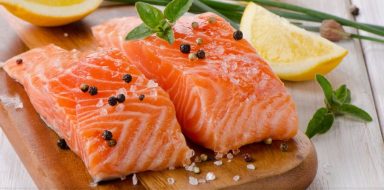Avoid These Beverages to Manage EoE Effectively
10 Drinks to Avoid for EoE
1. Acidic Beverages
Acidic drinks like citrus juices (orange juice, lemon juice) and certain sports drinks can irritate the esophagus and exacerbate EoE symptoms. The high acidity levels in these beverages can lead to increased inflammation and discomfort, making it harder for those with EoE to swallow and digest food properly.
2. Carbonated Drinks
Soda, sparkling water and other carbonated beverages can be problematic for individuals with EoE. The carbonation can cause bloating and pressure in the esophagus, leading to discomfort and worsening the symptoms of EoE. Additionally, many sodas contain high levels of sugar and artificial ingredients that can trigger inflammation.
Did you know there are certain foods for blood clotting disorders to include in your diet? Keep reading to learn more.
3. Caffeinated Beverages
Coffee, tea and energy drinks, which are high in caffeine, can stimulate acid production in the stomach and increase reflux, leading to irritation of the esophagus. For people with EoE, this can mean more inflammation and a higher likelihood of food impaction.
4. Alcohol
Alcoholic beverages, particularly wine and beer, are known to irritate the esophagus and increase inflammation. Alcohol can also relax the lower esophageal sphincter, allowing stomach acid to reflux into the esophagus, further aggravating EoE symptoms.
5. Dairy-Based Drinks
Milkshakes, cream-based coffees and other dairy-heavy drinks can be problematic for those with EoE, especially if dairy is a known trigger. Dairy products can cause increased mucus production and may lead to esophageal inflammation, worsening the condition.
6. Soy Milk
Although soy milk is a common alternative to dairy, soy is a frequent allergen that can trigger EoE symptoms in some individuals. Consuming soy-based drinks may lead to an immune response in the esophagus, causing inflammation and discomfort.
7. Chocolate Drinks
Hot chocolate, chocolate milk and other chocolate-flavored beverages can be problematic due to the presence of both caffeine and dairy. Chocolate is also an acidic food, which can irritate the esophagus and trigger EoE symptoms.
8. Artificially Sweetened Drinks
Diet sodas and other beverages sweetened with artificial sweeteners like aspartame or saccharin may cause immune responses in sensitive individuals. These additives can lead to increased inflammation and irritation in the esophagus.
9. Fruit Smoothies
While fruit smoothies can be healthy, they often contain high levels of natural sugars and acidic fruits like berries or citrus. For people with EoE, these ingredients can exacerbate symptoms and cause further inflammation in the esophagus.
10. Peppermint Tea
Although herbal teas are generally considered soothing, peppermint tea can relax the lower esophageal sphincter, allowing acid to reflux into the esophagus. This can lead to irritation and worsening of EoE symptoms.
Treatment Options for EoE
Managing EoE involves a combination of dietary changes, medications and in some cases, medical procedures. Here are some common treatment options:
Dietary Management
One of the most effective ways to manage EoE is through dietary changes. This may involve an elimination diet where common allergens like dairy, wheat, soy, eggs, nuts and seafood are removed to identify triggers. Once triggers are identified, they can be permanently removed from the diet to prevent flare-ups.
Medications
- Proton Pump Inhibitors (PPIs): These medications reduce stomach acid production and can help to alleviate symptoms by reducing acid reflux, which can irritate the esophagus.
- Topical steroids: Swallowed steroids, such as fluticasone or budesonide, can reduce inflammation in the esophagus. These are typically used in liquid or aerosol form and are swallowed rather than inhaled.
- Anti-allergy medications: Antihistamines and other allergy medications may be used to reduce the body’s immune response to allergens that trigger EoE.
Dilation
In severe cases where the esophagus has become narrowed due to chronic inflammation, a procedure called esophageal dilation may be performed. This involves stretching the esophagus to make swallowing easier and to relieve symptoms.
Long-Term Monitoring
EoE is a chronic condition that requires ongoing management. Regular follow-ups with a healthcare provider are essential to monitor the condition, adjust treatments and prevent complications.
Sip Smart
Managing EoE requires a comprehensive approach that includes avoiding specific foods and drinks that can trigger symptoms. By steering clear of the beverages listed above, you can help reduce inflammation and manage your symptoms more effectively. If you suspect you have EoE or are struggling with managing the condition, it’s important to consult with a healthcare provider who can guide you through dietary changes and other treatment options. With the right approach, you can live more comfortably and keep your symptoms under control.







